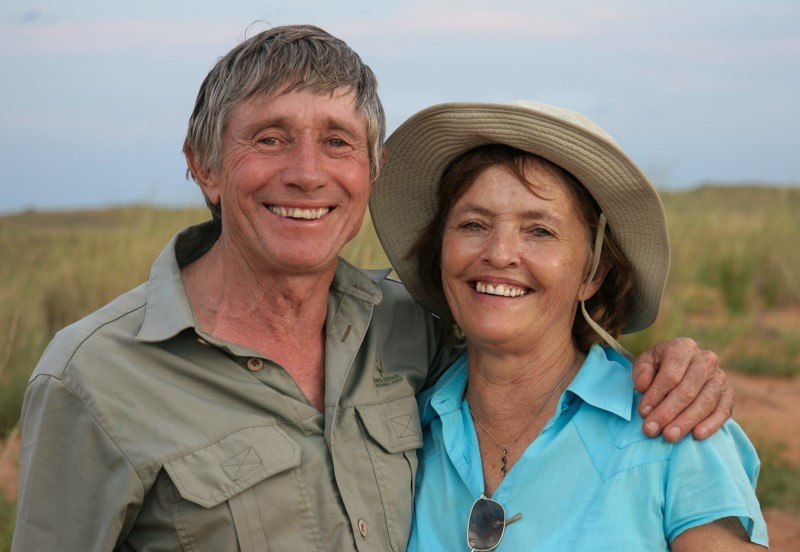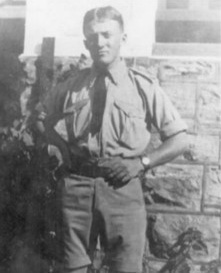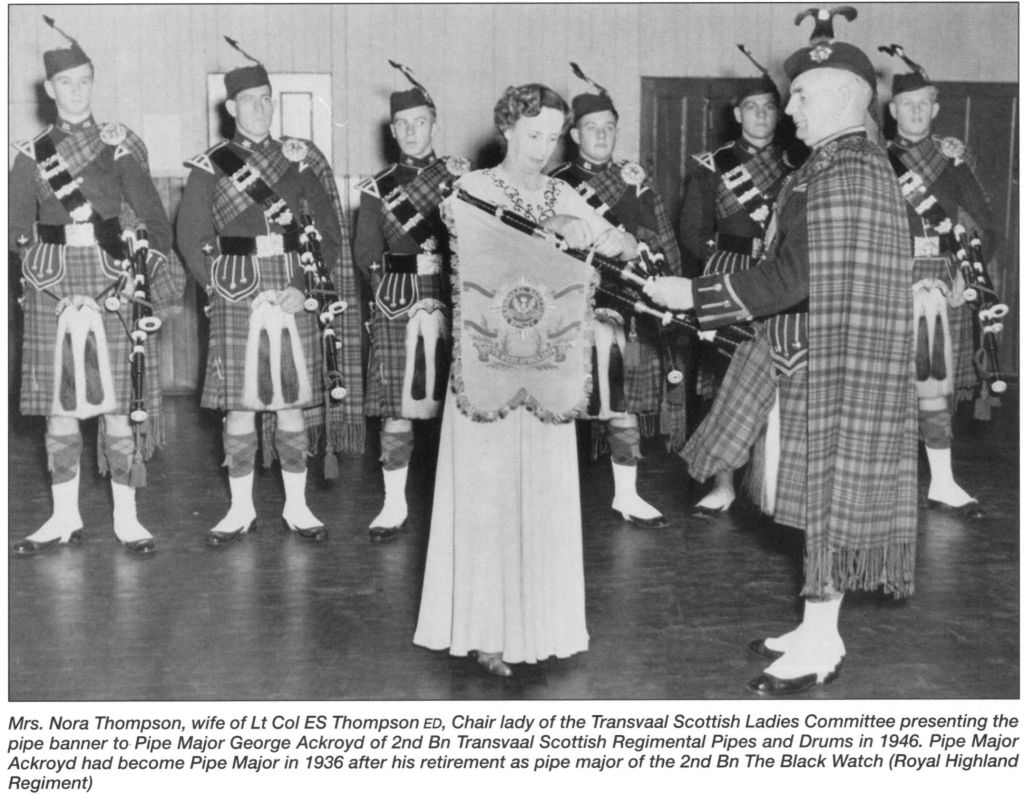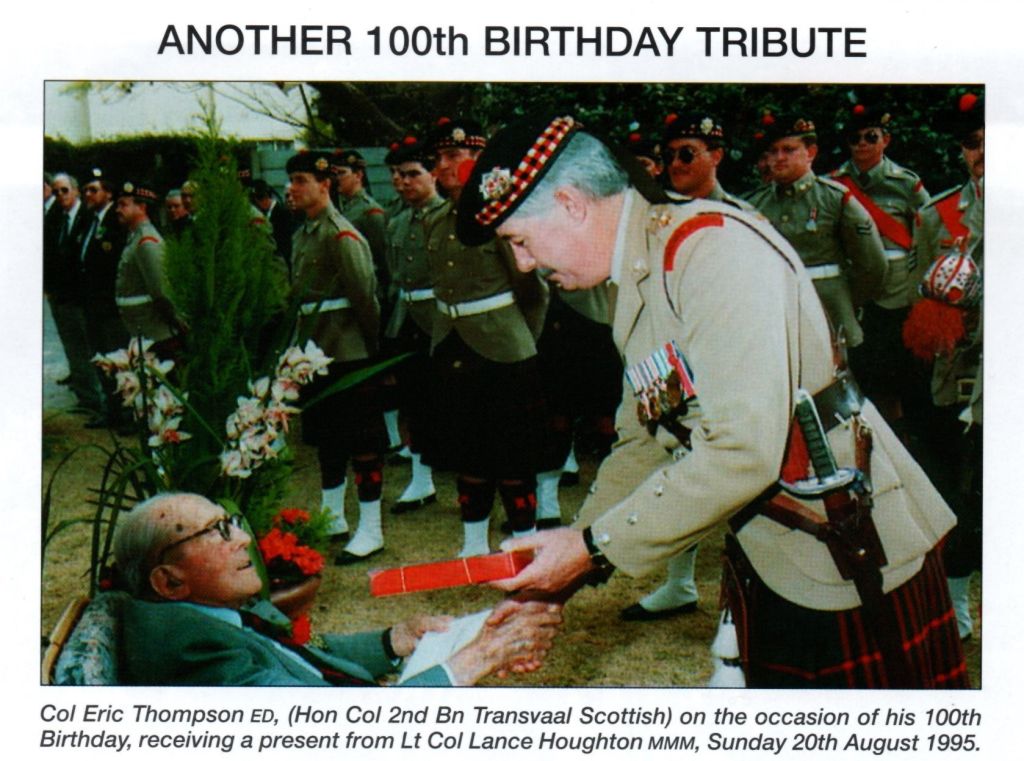St John's College and the Old Johannian Association are pleased to announce the 2023 Golden Eagle Award winners: Dr Michael “Gus” Mills (Alston, 1963) and The Thompson Family.
Dr Michael “Gus” Mills (Alston, 1963) has spent more than 40 years studying African ecology, focusing on Africa’s large carnivores, a subject in which he is recognised as a world authority. As an essential component in conservation planning, his work seeks to unpack the functional relationships between predators, their prey and the environment to better understand community dynamics, ecosystem functions and adaptation.
Over the years, his work has contributed to improved national park management, spurred a “citizen science” movement in South Africa, and mentored a new generation of scientists. Through his extensive writings, talks, interviews and involvement in documentary films, Gus has made an invaluable contribution to natural history, science and education.
From 1989 to 2006, Gus was a member of the Kruger National Park's Conservation Management Committee, and he made major contributions to devising management plans for both the Kgalagadi and Kruger national parks. During this time, he coordinated a watershed workshop between the IUCN African Elephant Specialist Group and the Kruger National Park to discuss elephant culling, which had been a central management strategy in the park for 30 years. The workshop resulted in the Kruger ending its elephant culling practice and saw a significant decrease in artificially providing water throughout the park. These changes led to a far more ecosystem-orientated approach to the park’s management.
Gus served as an Extraordinary Professor at the University of Pretoria for ten years, supervised several MSc and PhD theses, and was also a research associate and PhD supervisor at the UK’s Oxford University. He founded and was the first chairman of the Endangered Wildlife Trust’s Carnivore Conservation Group.
Besides participating in and coordinating numerous conservation workshops, Gus has been active in several international conservation programmes and has served on numerous IUCN carnivore specialist groups and other committees responsible for conservation in various African countries.
A prolific writer, he has published two definitive studies on large African carnivores - Kalahari hyaenas; the comparative behavioural ecology of two species (Unwin Hyman) and Kalahari Cheetahs: adaptations to an arid region (Oxford University Press). He has also published 153 peer-reviewed scientific papers, book chapters and IUCN reports on a wide range of topics on carnivore ecology, behaviour and the conservation aspects relevant to all large African carnivores and several smaller species. The 1998 Encyclopedia Britannica Book of the Year lauded his research publications on the Kruger Park wild dogs as one of the most significant zoological findings in the world in 1998. He has presented over 100 papers at conferences, symposia, seminars and workshops locally and internationally, several times as the keynote or invited speaker.
In 1989, Gus pioneered citizen science in South Africa. In his wild dog and cheetah population surveys, he enlisted the help of tourists to the Kruger National Park, asking them to provide photographs of individuals they encountered in the park. This successful programme continues to this day and has been vital in monitoring the population trends of these species in the Kruger.
Gus has been a valuable mentor to SANParks staff, including junior scientists, as part of SANParks transformation policy, the Lewis Foundation’s Human Capital Development Strategy for Biodiversity, and South Africa’s Department of Higher Education and Training’s nGAP programme. As part of a social upliftment programme, he has also supported the San community in the Kalahari, employing trackers and supporting a young San trackers’ development programme.
Gus and his wife, Margie, have published three popular scientific books: Hyena Nights and Kalahari Days (Jacana Media), A Natural History Guide to the Arid Kalahari (Black Eagle Media), and Fast Cats on Red Sands – a story about Kalahari Cheetahs and their Researchers (Crocuta Publishers).
In 2016, Gus received a Wildlife Excellence Award from the Southern African Wildlife Management Association.
Not one to slouch, in 2021, Gus became the oldest man to climb Africa’s third-highest peak, Margherita (5 100m), in the Ruwenzori Mountains of Uganda.
Dr Gus Mills is a worthy recipient of the 2023 Golden Eagle Award.
The Thompson family
Eric Speechley, Norah and Eric Courtenay Thompson
Eric Speechley Thompson (Hill, 1912) was among the first boys to enter St John’s. Fr Nash had visited his parents and urged them to send their sons to the tiny school near the Union Grounds in central Johannesburg. Although not brilliant at sports, Eric was active in the annual presentations of Shakespeare's plays.
After matriculating in 1912, Eric, like most able-bodied young men, joined for active duty in the Great War. Eric served as a machine gunner in East Africa, keeping a diary that was published. After the war in 1919, he joined the Anglo American Corporation, where he met his wife-to-be, Norah.
In 1920, Eric became involved in the Old Johannian Association, delivering extraordinary service over the years. With Fr Thomson, he originated the Johannian Magazine. He was instrumental in raising funds for the beautiful wooden panels in the Memorial Chapel and Bishop Nash’s crozier and chair. He donated the fine chandeliers in the cloisters, the regimental silver for the Cadet parades and the large “Thompson” pots at the top of the Amphitheatre. Eric wrote a rich history of the Old Johannian Association spanning 73 years — Let Me Tell You: The Story of the First 73 Years of the Old Johannian Association (1976) — published in 1976. He later served on the St John’s College Council.
Eric served for 40 years in the 2nd Transvaal Scottish Battalion, which he commanded as Colonel. Despite his age, he even served during the Second World War. He remained humble, according to mentions in dispatches and after the war, he became a leader in mobilising opposition to the racist policies of South Africa’s National Party. He was a leader in the Torch Commando, which later became the Labour Party.
During his time at Anglo American, Eric served as the secretary and treasurer of the Anglo American Chairman’s Fund, which served to empower many South Africans. On his 100th birthday, Anglo American provided a sumptuous lunch and arranged for 100 pipers and 50 officers from various regiments to march up to his house as a tribute to his lifelong military service. On this occasion, the Old Johannian Association donated R1 000 in his name to the Anglican Education Fund and initiated the Eric Thompson Sixth Form Bursary.
In a letter thanking the headmaster for the good wishes on his 100th birthday, Eric wrote: “Thus ended a memorable day in this wicked world – a world, however, which is sweetened by the God-given love and kindness in the hearts of many people.”
He was a man who gave a lifetime of service to others and his country.
His wife Nora worked tirelessly for the Old Johannian Association before she married Eric, performing secretarial duties and washing and ironing the chapel linen. Norah is the only woman who has received honorary life membership of the Old Johannian Association in recognition of all she had done for St John’s.
During the war, she served as the Chairman of the Transvaal Scottish Welfare Fund. She visited the relatives of men who had died Pro Patria, saw to the welfare of the men in the field and organised comfort parcels for prisoners of war. She was an active fundraiser for the Red Cross and arranged Christmas parties for the Regiment’s children. She is mentioned in the Regimental history of the Transvaal Scottish for her inspiring leadership.
After the war, she did not rest, actively participating in the Black Sash movement.
Eric and Norah’s son, Eric Courtenay Thompson (Hill, 1949), concluded the rich family tradition of philanthropy with his remarkably generous bequest to future generations of Johannians.
The Thompson family is a worthy recipient of the Golden Eagle Award.




